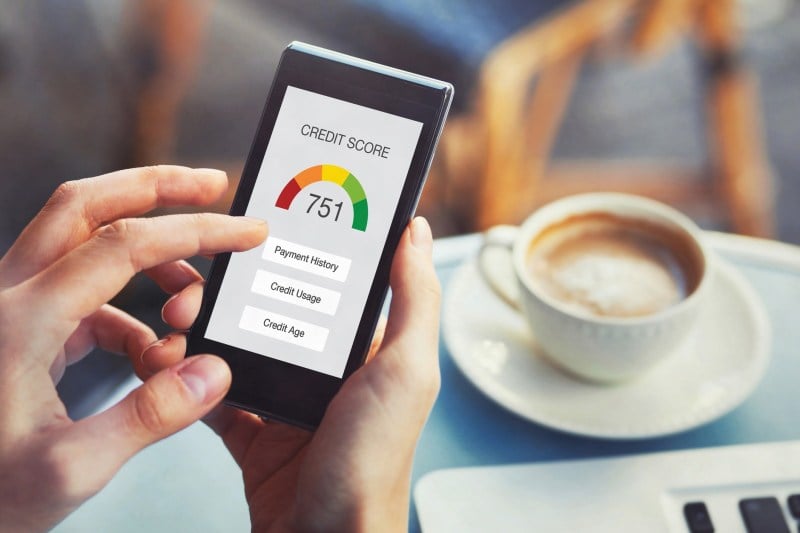
A good credit score can make a big difference when you want to make a big purchase. It could help you qualify for top-tier credit card offers and obtain large loans, such as mortgages with lower interest rates. Learn more about what is a good credit score and how you can achieve this financial milestone.
In This Article
What is a good credit score?
A good FICO score tends to fall between 670 to 739. FICO scores higher than 740 fall into the very good and exceptional categories.
For example, you might ask yourself, ‘Is 700 a good credit score?’ The answer is yes; a 700-credit score falls firmly into the good category. If you have a FICO score of 700, that’s slightly below the average credit score in the United States, which is 714, according to Experian data.
Credit score ranges
You’ll run into many different credit score models, including FICO scores and VantageScores. Below you’ll find a breakdown of credit score ranges for FICO scores, which fall on a scale between 300 and 850, according to myFICO.
- Poor: A FICO score of less than 580 is considered poor.
- Fair: A FICO score between 580 and 669 is considered fair.
- Good: A FICO score between 670 and 739 is considered good.
- Very good: A FICO score between 740 and 799 is considered very good.
- Exceptional: A FICO score between 800 and 850 is considered exceptional.
Anything above 670 is generally considered a healthy credit score. But if your score is above 800, you’re working with excellent credit.
What factors affect your score?
Your credit score is created with information on your credit report. Essentially, your credit report serves as a report card of your credit management behaviors. Here’s a look at the key factors impacting your credit score:
- Payment history: Lenders will evaluate your history of making on-time payments as well as whether you have any late or missed payments on your credit report. Late or missed payments can have a serious lasting impact on your score, generally for up to seven years.
- Credit utilization: It’s the ratio of the amount of credit you’re using in proportion to your overall credit limits. For a good score, you’ll need to maintain low utilization, typically under 30%.
- Length of credit history: The age of your credit accounts is another key ingredient in the score calculation. The longer you can manage to keep accounts open, the more your score can rise.
- New activity: When a potential lender pulls your credit report to decide whether to extend credit to you, that may register as a “hard inquiry” on your credit report. Your score may drop a few points as a result, particularly if multiple hard inquiries appear on your report.
- Credit mix: Lenders like to see that you have managed various types of credit, including credit cards, installment loans, auto loans, and more. Although this factor is less important than the others, it still plays a role.
The benefits of having a good credit score
In general, borrowers with a credit score above 670 find better financing options than those with a fair or poor score. Consider your long-term financial plans. If making a big purchase is on your radar, then having a good credit score should be a priority
For example, if you want to purchase a home and get a mortgage loan or consolidate debt with a personal loan to lock in better interest rates, a good credit score can help.
Beyond more affordable financing, future landlords might check your credit score. Many landlords prefer tenants with a good credit score, because it reflects a history of paying bills on time.
How to improve your credit scores
A good credit score can make your life easier. But the first step is to build your score, which takes time and energy. Here are some tips to help you obtain the score you desire.
Make on-time payments
The single most important ingredient in a good score is a record of on-time regular payments. That means you must pay your credit card and loan payments on time every month.
Lower your credit utilization
You can also improve your score by maintaining low utilization across all your accounts. Aim to charge less than 30% of your total credit limit at any given time. Paying down debt on your credit cards—and then keeping those accounts open—will free up some of the available credit and can gradually increase your score.
Avoid applying for new credit
Applying for a new line of credit or loan can push a hard inquiry onto your credit report. Enough hard inquiries could bring your credit score down. If possible, avoid applying for new credit unless you absolutely need to. For example, skip opening multiple credit cards if you can meet your spending needs with one.
A good credit score makes a difference
With the right credit score, you can potentially tap into more affordable financing options as you move through life. Depending on your situation, a good score could lead to saving thousands on interest payments.
Now that you know what a good credit score is, chart a course to improve your own.
Written by Sarah Sharkey and Edited by Rose Wheeler
Sarah Sharkey is a personal finance writer who enjoys diving into the details to help readers make savvy financial decisions. She lives in Florida with her husband and dogs. When she’s not writing, she’s outside exploring the coast. You can connect with her on her blog Adventurous Adulting.
All personal loans made by WebBank.